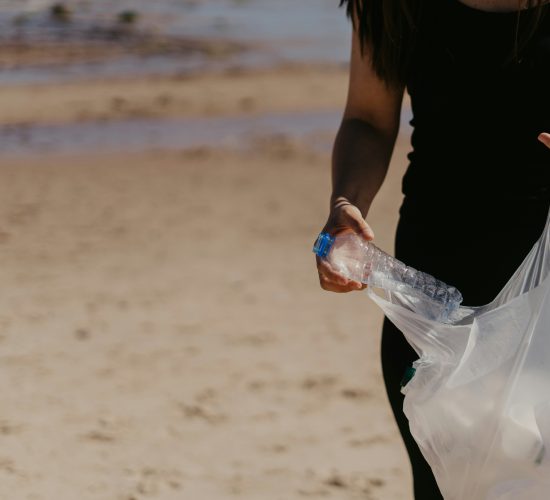Grassroots Revolution: Florida’s Battle Against Single-Use Plastics

With its vast coastline and vibrant ecosystems, Florida is at the forefront of a growing movement to eliminate single-use plastics. These plastics, including straws, bags, and bottles, have become a significant environmental concern, contributing to ocean pollution, harming wildlife, and littering beaches. The fight against single-use plastics in Florida is led by grassroots organizations, local governments, and concerned citizens determined to protect their state’s natural beauty and biodiversity. This article explores the ongoing efforts to reduce plastic waste in Florida, the challenges faced, and the impact of these initiatives.
The Rise of Grassroots Movements
The movement to reduce single-use plastics in Florida began at the grassroots level, with local communities recognizing the environmental threat posed by plastic waste. Environmental groups, such as the Surfrider Foundation and Oceana, have been instrumental in raising awareness about the impact of plastics on marine life and coastal ecosystems. These organizations have launched campaigns to educate the public, organize beach cleanups, and advocate for policies limiting single-use plastics.
One of the most visible grassroots efforts has been the push to ban plastic straws. Across Florida, activists have worked tirelessly to promote alternatives to plastic straws, such as reusable metal or bamboo straws. Local businesses have joined the movement, voluntarily discontinuing plastic straws and encouraging customers to use sustainable alternatives. In cities like Miami Beach and Fort Lauderdale, these efforts have gained traction, leading to local ordinances that ban or restrict the distribution of plastic straws in restaurants and bars.
The grassroots movement has also sparked broader conversations about reducing plastic waste. Citizens have rallied around reducing plastic bag use, encouraging the adoption of reusable bags instead. Some communities have even implemented plastic bag bans or imposed fees on their use. These initiatives have been driven by a collective desire to protect Florida’s unique environment, particularly its beaches, waterways, and marine life, from the pervasive threat of plastic pollution.
Local Governments Taking Action
Local governments in Florida have played a crucial role in the fight against single-use plastics. Recognizing plastic pollution’s environmental and economic costs, many municipalities have passed ordinances to reduce or eliminate single-use plastics within their jurisdictions. These local laws often target plastic straws, bags, and food containers, among the most common plastic pollutants in the ocean and on beaches.
Miami Beach, one of the most proactive cities in Florida, has implemented a series of ordinances to reduce plastic waste. The city has banned distributing straws, stirrers, and plastic foam products like Styrofoam coolers and food containers. Other cities, such as Coral Gables and St. Petersburg, have followed suit, enacting similar bans and restrictions on single-use plastics. These measures reduce the amount of plastic waste generated and raise awareness about the environmental impact of plastic consumption.
Challenges in the Fight Against Single-Use Plastics
While the movement to reduce single-use plastics in Florida has significantly progressed, it faces several challenges. One of the biggest obstacles is the influence of the plastics industry, which has lobbied against plastic bans and restrictions. The industry argues that plastic is a versatile, cost-effective material and that bans on single-use plastics could lead to economic hardship for businesses and consumers. This opposition has made it difficult to pass more comprehensive legislation at the state level.
Another challenge is changing consumer behavior. Despite increased awareness of the environmental impact of plastics, many people continue to use single-use items out of convenience. The availability of cheap plastic products and the lack of widespread access to affordable alternatives contribute to this issue. Additionally, the infrastructure for recycling plastic is limited in many parts of Florida, making it difficult for consumers to dispose of plastic waste properly. Education and outreach efforts are crucial to overcoming these challenges and encouraging sustainable consumption habits.
The Impact of Plastic Reduction Initiatives
Despite the challenges, the efforts to reduce single-use plastics in Florida have a positive impact. Beach cleanups organized by grassroots groups and local governments have removed thousands of pounds of plastic waste from Florida’s shores. These cleanups improve the aesthetic appeal of the beaches and protect marine life from the harmful effects of plastic pollution.
The bans and restrictions on single-use plastics in various cities have led to a noticeable decrease in plastic waste in some areas. For example, since implementing the plastic straw ban in Miami Beach, there has been a significant reduction in the number of plastic straws found during beach cleanups. These successes demonstrate the effectiveness of targeted plastic reduction initiatives and provide a model for other communities to follow.
The fight against single-use plastics in Florida is far from over, but the progress made by grassroots movements, local governments, and concerned citizens is encouraging. These efforts have brought the issue of plastic pollution to the forefront of public consciousness and have led to meaningful changes in behavior and policy. While challenges remain, the momentum generated by the grassroots revolution in Florida offers hope that the state can continue to reduce plastic waste and protect its precious environment. The success of this movement depends on the continued commitment of all stakeholders—government, businesses, and individuals—to work together towards a plastic-free future.
Additional Information
- Blogs
- environmental concern, grassroots movements, plastics industry
- David Hastings